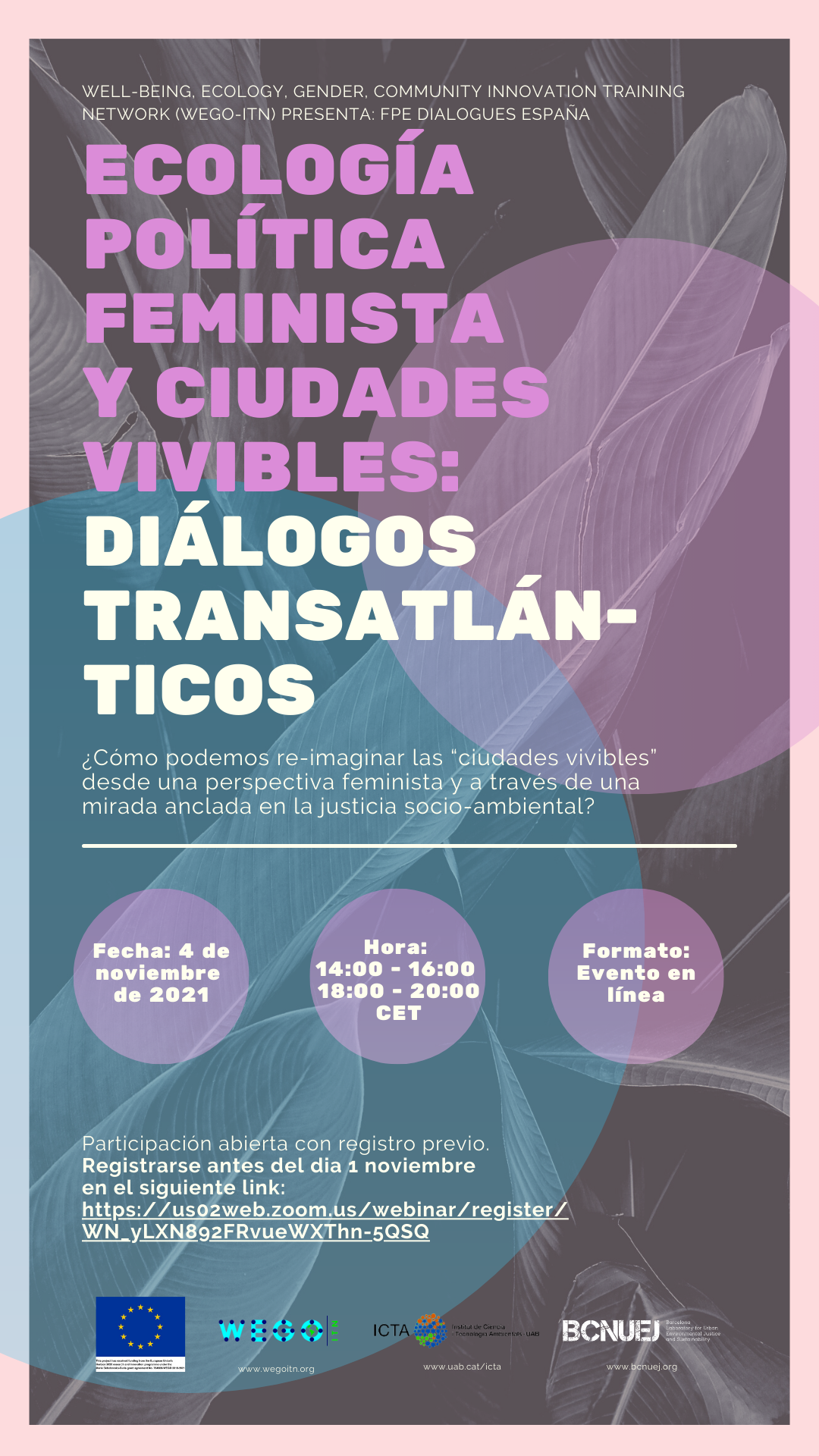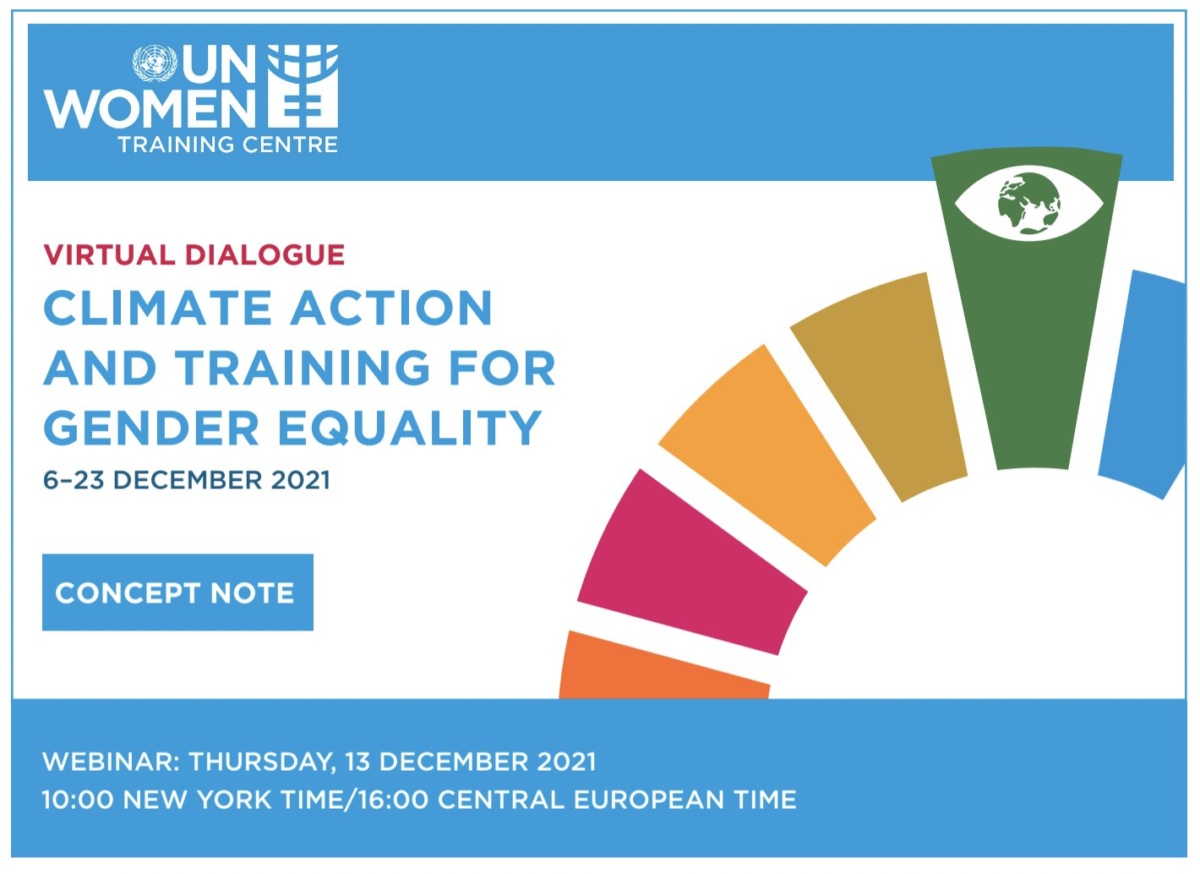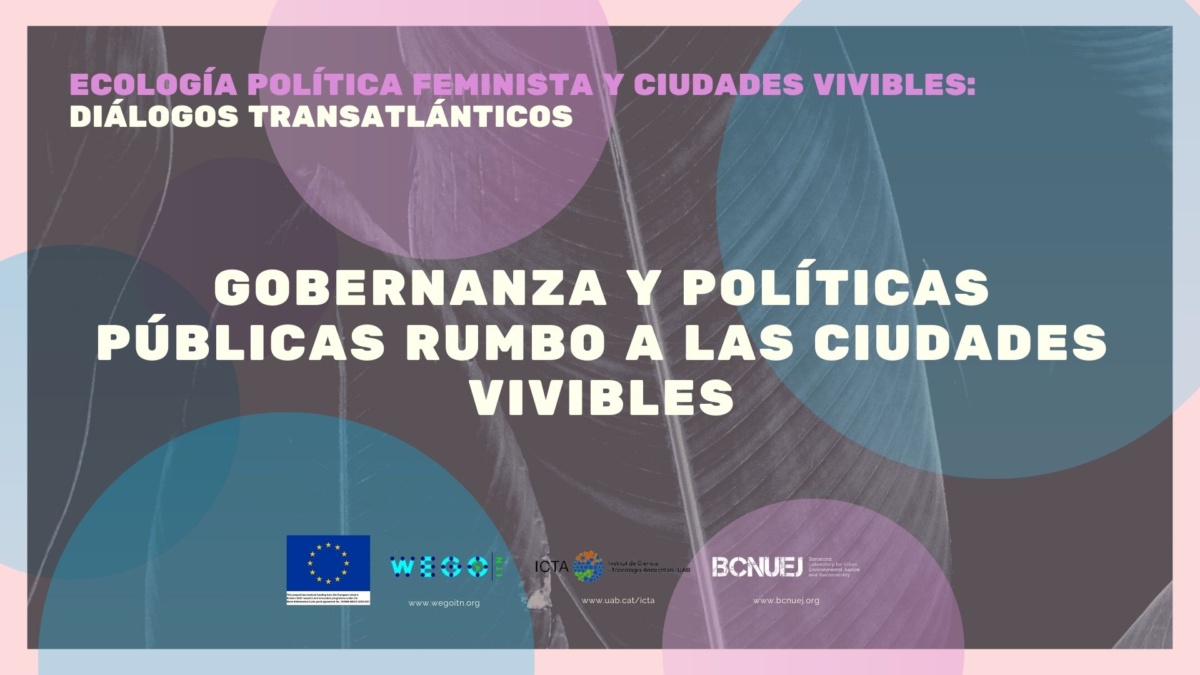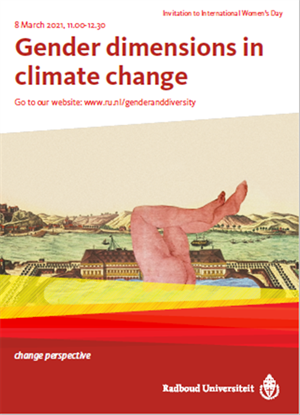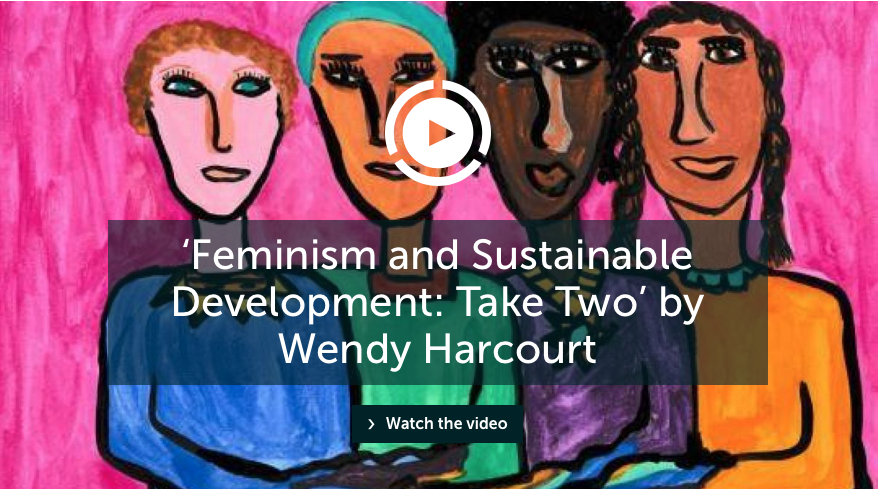In our two-fold event “Feminist Political Ecology and Liveable Cities: Transatlantic Dialogues”, collectively organized by WEGO-ITN PhD’s and mentors in Barcelona and Montevideo, amongst other invitees and participants from grassroots organisations, we engaged with policymakers from Europe and Latin America to discuss feminist and ecological strategies in urban and regional planning:
– Silvana Pissano, the mayor of Municipio B in Montevideo
– Amaranta Herrero, coordinator of Barcelona City Council’s project ‘Barcelona World Capital of Sustainable Food 2021’
– Laia Forné Aguirre, urban sociologist and planner who has worked in public administration and as advisor for participatory processes at Barcelona’s City Council
– María Pía Torres Zamora, feminist anthropologist involved in the Constitutional Convention in Chile 2021
A written report of our FPE Dialogues in Barcelona was presented at the follow-up event in Montevideo organized by the involved WEGO team and the Defensoría de Vecinos y Vecinas de Montevideo in collaboration with the Spanish Agency for International Cooperation AECID who hosted the event at their training centre.
The report was also published on the Government of Uruguay’s official website (https://www.gub.uy/junta-departamental-montevideo/comunicacion/publicaciones/relatoria-ecologia-politica-feminista-ciudades-vivibles-dialogos).


